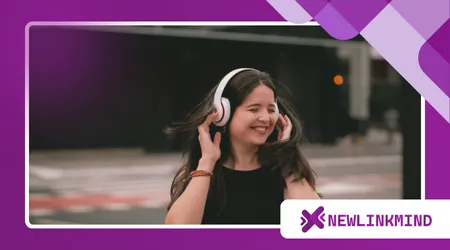Music or Silence? What Works Best for Morning Meditation

advertisements
The pivotal question for millions beginning their daily practice is whether Music or Silence serves the meditative journey better.
This dilemma isn’t new, yet its modern framing—app soundtracks versus pure stillness—demands an intelligent analysis.
The choice fundamentally shapes the quality of your focus and the depth of your inner experience.
A dedicated morning meditation practice is a crucial bedrock for a productive, centered day.
The Case for Sound: Anchoring the Restless Mind
For many practitioners, particularly those new to the discipline, complete silence feels less like peace and more like pressure.
advertisements
Silence often amplifies the relentless, internal chatter, sometimes called the “monkey mind.” Introducing sound can act as a crucial anchor. The right sonic landscape provides a gentle focal point.
It effectively gives the mind a safe space to land, preventing an immediate spiral into daily anxieties.
Music or Silence is a question of approach, not absolute right or wrong. The auditory stimulus, when chosen correctly, becomes a tool for engagement.
advertisements
Orchestrating Calm: The Benefits of a Soundtrack
Certain types of music are biologically predisposed to induce relaxation. Slow-tempo, instrumental pieces with minimal variation can synchronize brainwave patterns.
This promotes the desired alpha brainwaves, often associated with a calm, yet attentive state of mind.
Research consistently suggests sound interventions can reduce physiological stress markers.
Read here: Meditative Walking: Integrating Movement into Morning Practice
A 2025 scoping review on the Effects of Sound Interventions on the Mental Stress Response in Adults noted that music, particularly classical, effectively reduces stress indicators.

These include cortisol levels and heart rate variability. This is a powerful, measurable effect.
| Auditory Intervention | Physiological Stress Markers | Primary Cognitive Effect |
| Silence | Significant reduction post-session | Enhanced self-awareness, deep focus |
| Classical Music | Effective reduction during session | Emotional enhancement, external distraction masking |
| Nature Sounds | Potential for stress relief | Focus point, environmental masking |
Imagine the mind as a rapidly spinning top. Silence is like trying to stop it instantly—the resistance is intense.
Music, however, acts like a gradual, rhythmic friction. It gently slows the rotation, making the eventual arrival at stillness less jarring.
The proper soundtrack also works as a shield against external noise pollution.
See how interesting: Science Behind Morning Meditation and Mental Health
If you live near a busy street, soft background music can effectively mask the jarring sounds of traffic. This is a practical, modern application for using sound to enable focus.
The Argument for Absolute Stillness Music or Silence
While music offers a crutch, true mastery in meditation often lies in the willingness to relinquish all external aids.
Silence forces an intimate confrontation with one’s own internal world. It demands radical presence, unmediated by any external cue.
Pure stillness is the ultimate training ground for concentration. Without a melody to follow or a tone to focus on, the only remaining anchor is the breath itself.
This practice strengthens the mindfulness muscle most profoundly.
Deepening Self-Awareness Through Absence
The power of silence is the absence of competition for your attention. In the void of external sound, you gain profound clarity.
Thoughts, emotions, and subtle bodily sensations rise and fall without the distraction of an accompanying rhythm.
Check this out: Yoga Challenges You Can Do Without Leaving the House
The question of Music or Silence reveals a difference in the goal of the practice.
Silence is about observing the mind, while music can be about guiding the mind. The ability to sit with discomfort, or simply the boredom of an unbusy mind, is a key developmental leap.
You become acutely attuned to the subtle sounds of your environment. You notice the distant birdsong or the hum of the refrigerator.
This heightened sensory perception fosters a richer connection to the immediate present moment.
A 2006 study from the University of Pavia unexpectedly found that a two-minute silence inserted between musical tracks elicited the lowest heart rate and blood pressure readings of all the tested stimuli.
The relaxation response to silence was even greater than the quiet rest before the study.
This indicates a deep, innate appreciation for stillness within the nervous system.
As an analogy, considering the two options is like deciding whether to learn to ride a bike with training wheels or without.
Training wheels (music) help you start and build confidence, but true balance (silence) only comes when they are removed.

Finding Your Personal Formula Music or Silence
The reality is that Music or Silence isn’t a definitive, one-size-fits-all decree. The best choice is often a matter of context, experience level, and the specific intention for the day’s meditation.
A beginner might benefit from guided meditation with calm music to overcome initial resistance and anxiety.
An experienced meditator, however, might use silence to push the boundaries of their concentration and self-inquiry.
Consider using music for a restorative, stress-releasing session after a demanding week.
Conversely, choose silence for a morning dedicated to clear, focused intention-setting. This dynamic flexibility defines a truly intelligent practice.
For instance, consider a person working from a noisy home office. A low, ambient soundtrack is not a distraction; it is a necessity that permits the focus required.
Another person, a veteran meditator, seeks a deeper state of non-dual awareness
For them, even the most subtle drone or tonal shift in music is a tether, and they must choose pure silence.
The global meditation industry, largely driven by apps, is projected to continue its expansion, reflecting increased mainstream adoption.
The average percentage of adults who meditate in surveys across North America and Europe is estimated at 15%, according to 2025 statistics.
This vast population comprises diverse needs, making a rigid prescription impossible.
Is the pursuit of stillness not, ultimately, the pursuit of listening to the quiet wisdom that is always there?
Ultimately, the most effective path is the one you will commit to consistently.
Experiment with both—dedicate a week to each—and monitor your internal state. Your body and mind will provide the most honest answer.
Frequently Asked Questions
Is it cheating to use music for meditation?
No, it is not cheating. Using music is a legitimate tool, particularly for beginners or for those meditating in noisy environments.
The purpose of meditation is not adherence to rigid rules, but consistent self-awareness. If music helps you focus and reach a state of calm, it serves its purpose.
What kind of music is best for morning meditation?
Generally, instrumental music, ambient soundscapes, nature sounds (like rain or waves), or specific meditation-focused tones are recommended.
Avoid music with lyrics or a strong, unpredictable beat, as these often engage the cognitive brain too actively, hindering the deep state of relaxation.
When should I transition from music to silence?
Transition when you notice the music is becoming a distraction rather than an aid. A good time to experiment is after you have established a consistent daily habit.
Try short periods of silence (five minutes) and gradually increase the duration over weeks or months. This gradual approach makes the transition manageable.
Can silence ever be detrimental to meditation?
For individuals dealing with severe anxiety, PTSD, or panic disorders, immediate, prolonged silence can sometimes be overwhelming, as it can heighten internal sounds and uncomfortable sensations.
In these cases, a gentle, guided meditation or very soft, continuous background tone is often a safer starting point.
++ Can you even meditate without new-age music, man?
